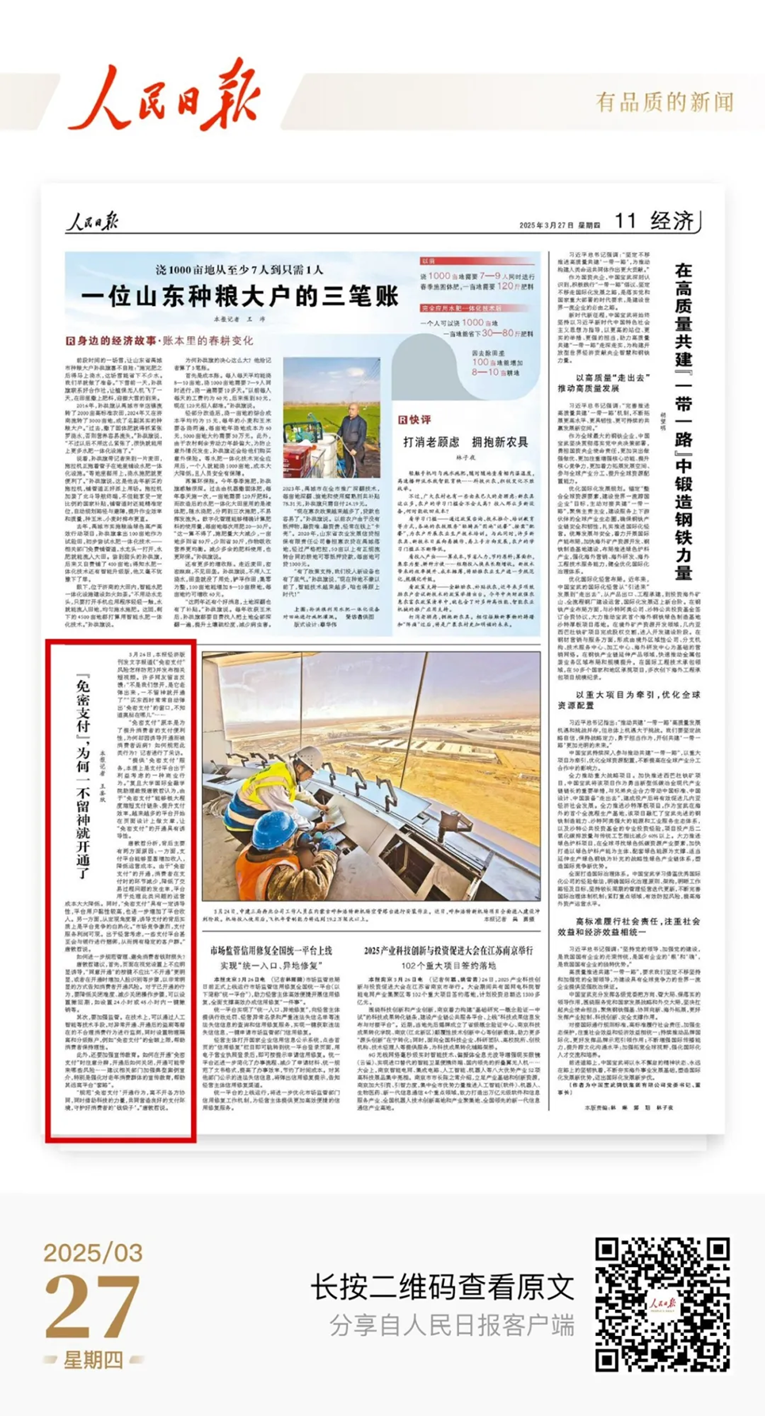
-
 86-21-63895588
86-21-63895588
-
 No.1, Lane 600, Nanchezhan Road, Huangpu District, Shanghai 200011
No.1, Lane 600, Nanchezhan Road, Huangpu District, Shanghai 200011
Release time:2025-03-27
FISF MARCOM March 27th 2025 19:20 Shanghai
“Password-free payment”, originally created for the purpose of making consumer payments more convenient, has been denounced by consumers due to activation induction. So how should we regulate such behavior and help consumers avoid financial loss?
For this, Dunzhe Tang, Assistant Professor at FISF, accepted an interview of The People’s Daily, the content of which was published on the economic edition of The People’s Daily on March 27th.

Professor Dunzhe Tang analyzed that there were mainly two reasons for the activation induction of “password-free payment”: on one hand, the payment platform could increase income and cut down operation costs evidently; and on the other hand, from a macro perspective, payment induction was actually a sign of more severe platform competition. “The market is severely competitive, as the profit from payment services is huge. So for the sake of operation, some payment platforms even bundle up with banks in order to gain a stable customer base.”
教授介绍
Professor Introduction

唐敦哲
Dunzhe Tang
复旦大学国际金融学院助理教授
Assistant Professor at FISF
As for how to regulate the implementation of activating “password-free payment”, Professor Dunzhe Tang suggested that firstly no visually obvious induction should be set on the payment page, i.e. the “agreement to activate” button should not be more conspicuous than “not activating”, or extra steps like face recognition should be added before actual activation so that consumers can be informed of relevant risks in a clear way. Besides, for users who have already activated such function, deactivation should be set more conveniently with fewer steps, and a withdrawal period could be applied, such as one-click withdrawal within 24 or 48 hours.
Secondly, supervision needs to be enhanced. Technically, technology like AI can be utilized to supervise abnormal activation, fraudulent payment after activation and other potential unreasonable consumption behaviors. Meanwhile, physical separation and classified accounts can be adopted to help consumers stay rational, like the upper limit of “password-free payments”.
Moreover, there should be more publicity and education. People should be taught how to distinguish when activating a “password-free payment”, how to deactivate after activation and what risks activation might bring. It is suggested that relevant departments should broaden promotion and introduction of typical cases, especially publicity education on the elderly consumption group to help them escape “tricks” of platforms.
In the end, as Professor Dunzhe Tang urged, “Regulating the activation of ‘password-free payment’ cannot be achieved without the collaboration of all parties along with the help of technology, so a favorable payment environment can be created and consumers’ ‘money bag’ can be safeguarded.”